More than two thirds of disabled teenage girls want to be more active but face barriers to physical activity and sport, new data shows.
Research led by Access Sport shows 67% of girls aged 11-19 who have a disability or impairment, a long-term health condition or a neuro-diverse condition want to engage in more sport and exercise.
The ‘Breaking Barriers’ report explores disabled teenage girls’ attitudes towards sport and exercise, identifying the additional barriers they face and providing recommendations to providers on how to address this activity gap.
This inactivity is contributing to mental health issues, including being less happy and more anxious, and means that they are not experiencing the wide-ranging benefits that sport has to offer.
Key findings included that more than four-fifths (81%) of disabled teenage girls understand the benefits of playing sport or exercising and therefore want to do more.
However, the additional barriers they face to their non-disabled counterparts include a lack of suitable opportunities outside school, with 64% stating they do not take part in sport on a regular basis or avoid sport altogether.
Findings suggested that girls-only opportunities help females find joy in sport and more than half (54%) of those surveyed stressed the importance of participating with other disabled girls.
Coaches, volunteers and teachers play a key role in creating a non-judgmental and welcoming environment and therefore need to understand the support needs of disabled girls.
Currently, 54% of disabled teenage girls believe that coaches or instructors don’t understand their impairment, health condition, illness or disability and therefore struggle to provide appropriate support.
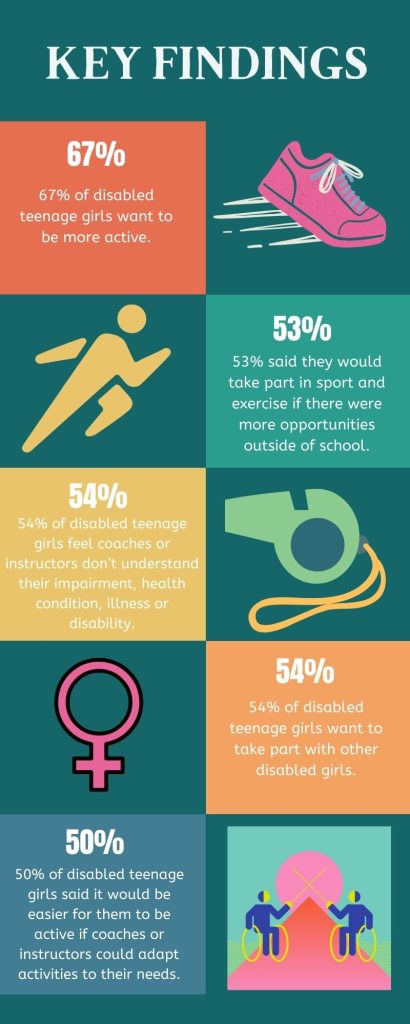
The data collated showed disabled teenage girls experience many of the same barriers as non-disabled teenage girls such as lower confidence, finding sport or exercise hard, not liking others watching or feeling judged by others.
But they also face additional barriers including feeling like their impairment gets in the way of them taking part and a lack of representation, in that they do not have anyone similar to them doing sport.
The report made three recommendations to sport and exercise providers:
- To build their understanding of disabled teenage girls’ needs and their attitudes towards sport and exercise.
- To provide more inclusive offers for a disabled teenage girl audience, that are judgement-free and prioritise fun and adventure.
- To better educate coaches in disability-inclusive sport and exercise to ensure disabled teenage girls can take part and feel included.
The report also made three recommendations to commissioners, funders and policy makers:
- To embed and prioritise inclusive coaching in the education and development of the sport and exercise workforce to help coaches understand the needs of disabled teenage girls and adapt sessions accordingly.
- To invest in more inclusive opportunities in and out of school for disabled teenage girls, with the knowledge that all sports can be made to be inclusive.
- To apply an intersectionality lens on future research focused on teenage girls’ experiences, recognising that they are not a homogenous group. Disabled females make up 12.2% of girls aged 10-19 years old in England according to the Office for National Statistics, so this should be considered when examining teenage girls’ experiences.
Access Sport led this research project in partnership with Women in Sport, Nuffield Health and the Sweaty Betty Foundation, and collected responses from 189 disabled teenage girls.
Access Sport is a charity that works to transform the community sport offer across the UK and make inclusion in sport the norm.
They have been doing this in Greater London since 2007 by tackling the access barriers currently faced by disadvantaged and disabled young people, including developing inclusive community sports clubs and facilities.
They are currently transforming the disability inclusion offer in southeast London, working closely with community sports clubs in the boroughs of Bexley, Bromley, Greenwich, Lambeth, Lewisham and Southwark to ensure that deaf and disabled young people and their families have access to a breadth of local sports opportunities.
Featured image credit: Fae via Wikimedia Commons under CC BY-SA 3.0 licence
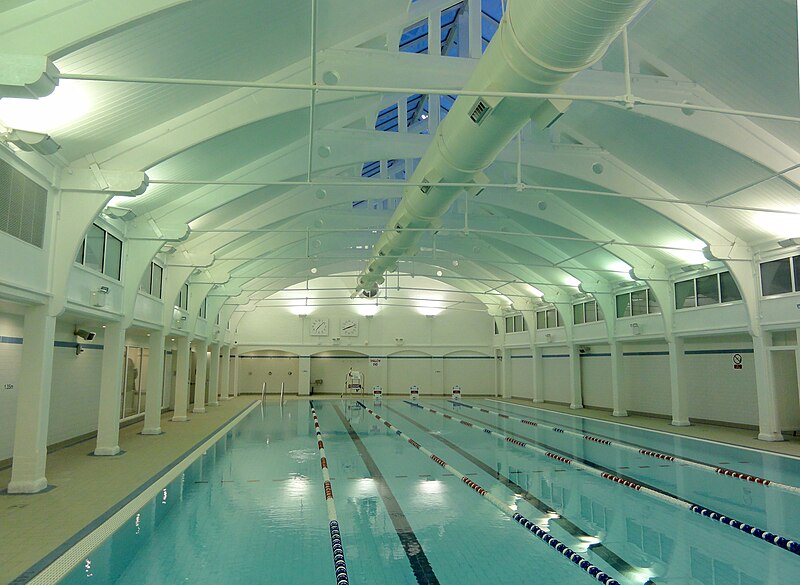
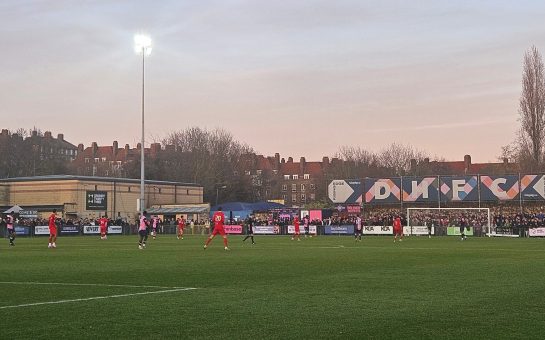

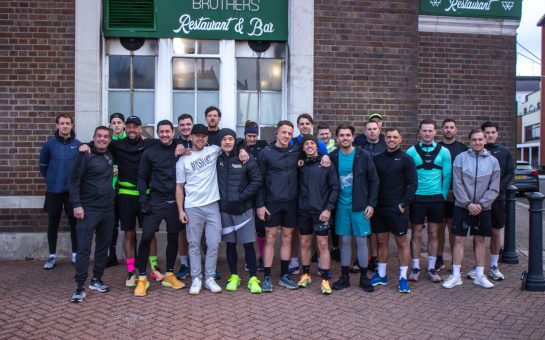
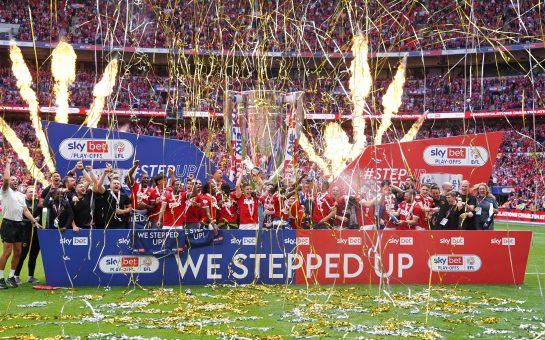
Join the discussion